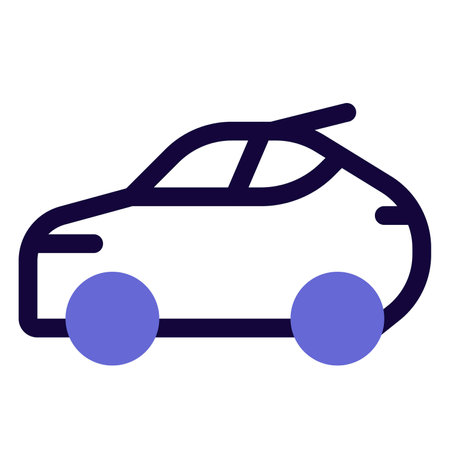1. Understanding Drunk Driving in India
Drunk driving, often referred to as “drink and drive” in Indian parlance, is a serious issue that continues to plague our roads, especially in bustling metros like Mumbai, Delhi, and Bengaluru. According to Indian law, driving under the influence (DUI) is strictly prohibited and is defined by the permissible blood alcohol content (BAC) limit, which is set at 0.03% or 30 mg of alcohol per 100 ml of blood for private vehicle drivers. Anything above this limit can land you in big trouble with the authorities. Despite strict regulations and frequent police checks—what we commonly call “nakabandi”—the prevalence of drunk driving incidents remains high, particularly during weekends, festivals, and late-night outings. In cities like Mumbai, where nightlife is vibrant, or Bengaluru, known for its pub culture, cases are regularly reported. The combination of easy access to alcohol and the hustle-bustle lifestyle makes it a common yet dangerous practice. Understanding what constitutes drunk driving under Indian law and acknowledging how widespread it is across our major cities is the first step toward addressing this social menace.
Legal Penalties for Drunk Driving
Drunk driving in India is a serious offence under the Indian Motor Vehicles Act, and the penalties have become stricter in recent years. With more awareness about road safety, the government has made amendments to ensure that offenders face severe consequences, hoping to curb this dangerous behaviour. If you are caught driving under the influence of alcohol, here’s what you need to know about the legal penalties you may face.
Fines and Imprisonment
The fines for drunk driving were significantly increased after the 2019 amendment to the Motor Vehicles Act. Depending on whether you are a first-time offender or a repeat offender, both the amount of fine and jail term can vary. Here’s a quick look:
| Offence Type | Blood Alcohol Content (BAC) Limit | Fine | Imprisonment |
|---|---|---|---|
| First Offence | More than 30 mg/100 ml blood | ₹10,000 | Up to 6 months |
| Subsequent Offences | More than 30 mg/100 ml blood | ₹15,000 | Up to 2 years |
License Suspension and Disqualification
If you are found guilty of drunk driving, your driving license can be suspended immediately. In some cases, especially if it is not your first offence, your license may even be permanently cancelled. The local RTO (Regional Transport Office) has the authority to take swift action without lengthy legal procedures.
Other Legal Consequences
Apart from fines and imprisonment, there are other legal consequences as well. You might have to attend counselling sessions or awareness programs organised by state authorities. Sometimes, police may also seize your vehicle on the spot if you are deemed a risk to public safety. For commercial drivers or those holding a professional license, penalties can be even harsher—leading to permanent disqualification from driving.
The Importance of Following the Law
The intention behind these strict penalties is not just punishment but also prevention. Indian roads see thousands of accidents every year due to drunk driving, and these laws act as a deterrent. Understanding these legal consequences is crucial for every driver because being aware can help save lives and protect families on our roads.

3. Cultural Attitudes and Local Practices
When it comes to drunk driving in India, understanding the cultural backdrop is just as important as knowing the laws. In Indian society, attitudes towards alcohol consumption and driving vary widely across regions, communities, and even within families. For many people, drinking is still seen as taboo or reserved for special occasions. However, in metropolitan cities like Mumbai, Bengaluru, and Delhi, a vibrant nightlife culture has emerged, with pubs and bars becoming popular hangout spots. This shift has also brought new challenges in managing responsible drinking and safe driving.
India’s diversity means that regional differences play a big role in how alcohol is consumed and how drunk driving is perceived. For instance, states like Gujarat and Bihar have strict prohibition laws, while states like Goa and Punjab are known for their more liberal attitudes towards drinking. In the North-East, local brews are common at social gatherings. These differences affect not only how people consume alcohol but also how they view the seriousness of getting behind the wheel after drinking.
Festivals and weddings are integral to Indian life and often involve elaborate celebrations where alcohol flows freely. Events like Holi, Diwali, New Year’s Eve, and countless wedding parties see a spike in both alcohol consumption and road accidents. During these times, it’s common to see friends or relatives insisting “Chalo yaar, ek aur peg!” (“Come on friend, one more drink!”) without much thought about who will drive home safely. Unfortunately, these joyous occasions can quickly turn tragic if someone decides to drive under the influence.
The growing nightlife scene in urban centers has also brought increased awareness campaigns from local authorities. Initiatives like “Don’t Drink & Drive” checks by traffic police become especially active during festival seasons and weekends. Still, there is often a gap between awareness and actual practice—many believe that “thoda sa” (just a little) won’t impair their ability to drive.
Ultimately, changing mindsets around drunk driving requires more than just strict laws—it needs ongoing conversations within families, friend circles, and communities. By sharing real-life stories of loss or near misses due to drunk driving, Indians can help each other make safer choices—not only during celebrations but every time they step out for a drink.
4. Personal Stories and Real-Life Incidents
When it comes to drunk driving in India, real-life incidents and personal stories drive home the dangers more than any statistics ever could. Across metro cities like Mumbai, Delhi, and Bengaluru as well as smaller towns, families have been shattered by the consequences of drinking and driving. Let us look at some first-hand accounts and newsworthy incidents that underline why this issue is so urgent.
Firsthand Account: A Night Out Gone Wrong
A 27-year-old IT professional from Pune shared how a late-night party with friends ended in tragedy. Despite warnings, his friend insisted he was “totally fine” to drive after two beers. On their way home, the car skidded and hit a divider, resulting in serious injuries to everyone involved. The aftermath was not just physical pain but also legal troubles, emotional trauma for families, and years of regret.
News Incident: The Mumbai Sea Link Accident
In 2022, headlines across India highlighted a horrific crash on the Bandra-Worli Sea Link where a luxury car driven by an intoxicated youngster collided with multiple vehicles. The accident led to the loss of three lives and left many injured. Investigations revealed that the driver had ignored repeated pleas from his friends not to take the wheel.
Common Patterns from Real Cases
| Incident Location | Alcohol Consumed | Consequences | Legal Action Taken |
|---|---|---|---|
| Bengaluru | Whisky (3 pegs) | Minor injuries, vehicle damage | License suspended, ₹10,000 fine |
| Kolkata | Beer (4 cans) | Fatality (pedestrian) | Jail time, permanent license cancellation |
| Pune | Rum (2 pegs) | Multiple fractures | Court case pending, vehicle seized |
The Emotional Aftermath
The ripple effect of such incidents extends far beyond those directly involved. Families struggle with guilt, survivors face social stigma, and many find it hard to recover from the trauma. In Indian culture, where family reputation holds immense value, these tragedies can deeply scar communities.
If you or someone you know has experienced or witnessed such incidents, sharing these stories can help others understand that one reckless decision can change lives forever. It’s not just about legal penalties – it’s about protecting your loved ones and society as a whole.
5. Importance of Awareness and Responsibility
In India, tackling drunk driving is not just about enforcing the law—it’s also about building awareness and a sense of responsibility in our communities.
Why Education Matters
Educating people, especially the youth, plays a vital role in preventing drunk driving incidents. Many youngsters may not fully understand the risks and legal consequences of getting behind the wheel after consuming alcohol. Schools, colleges, and even workplaces are increasingly hosting seminars and workshops to highlight real-life stories, statistics, and the impact of accidents caused by drunk driving. When we know better, we do better—and that’s why spreading knowledge at the grassroots level is so important.
The Power of Community Involvement
Community support is crucial for making our roads safer. Local resident welfare associations (RWAs), NGOs, and even taxi unions in cities like Mumbai, Delhi, and Bangalore have started community-driven campaigns to encourage responsible drinking habits. By organizing events such as “No Drink & Drive” rallies or partnering with local pubs to offer free rides home during festival seasons, these groups foster a culture where speaking up against drunk driving is encouraged and respected.
Social Initiatives: Youth-Focused Campaigns
Youth are often at higher risk for risky behaviors on the road. Popular campaigns like ‘Don’t Drink and Drive’ by various state traffic police departments use catchy slogans, memes, street plays, and impactful videos on social media to reach younger audiences. Influencers and celebrities also play their part by sharing messages that resonate with today’s generation—making it cool to be responsible.
Together We Can Make a Difference
The fight against drunk driving in India needs everyone’s participation. From parents openly discussing safe driving habits at home to friends refusing to let each other drive after a party—every small action counts. The more we talk about this issue openly and honestly, the more lives we can save on our roads.
Role of Technology and Law Enforcement
When it comes to fighting drunk driving in India, technology and strict law enforcement are making a big difference. The use of breathalyzers has become much more common at police checkpoints, especially on weekends or during festive seasons when people tend to party harder. You might have noticed traffic police stopping vehicles late at night in cities like Mumbai, Bengaluru, or Delhi, asking drivers to blow into a breathalyzer. It’s a quick and effective way to check if someone is over the legal alcohol limit. These random checks send a strong message: getting behind the wheel after drinking is not just risky, but you’re also very likely to get caught.
Another positive change is the rise of taxi apps and ride-sharing services like Ola and Uber. Gone are the days when you had to wait endlessly for an auto rickshaw or depend on your friends for a lift home after a party. Now, with just a few taps on your phone, you can book a safe ride any time of the night. Many young Indians and even families are making it a habit to book cabs instead of driving themselves after social gatherings. This small shift in behaviour is already helping reduce drunk driving incidents across the country.
In addition to these services, there are also mobile apps that help track your blood alcohol level and remind you not to drive if you’ve had one too many drinks. Some apps even allow you to alert friends or family if you need help getting home safely. These technological solutions are slowly changing our approach to road safety and personal responsibility.
But technology alone isn’t enough—the role of law enforcement remains crucial. The Traffic Police’s constant vigilance through night patrols, routine checks, and awareness drives ensures that people think twice before taking the risk. There are even instances where local authorities collaborate with pubs and bars to display messages about the consequences of drunk driving or offer discounts on cab fares as an incentive for responsible choices.
All these efforts—breathalyzers, police vigilance, taxi services, and awareness campaigns—work together to create a culture where drunk driving is not acceptable. While there’s still a long way to go, these steps are helping save lives every day on Indian roads. Remember, taking that extra bit of effort to use technology or call a cab isn’t just about following the law; it’s about valuing your life and the lives of others.


